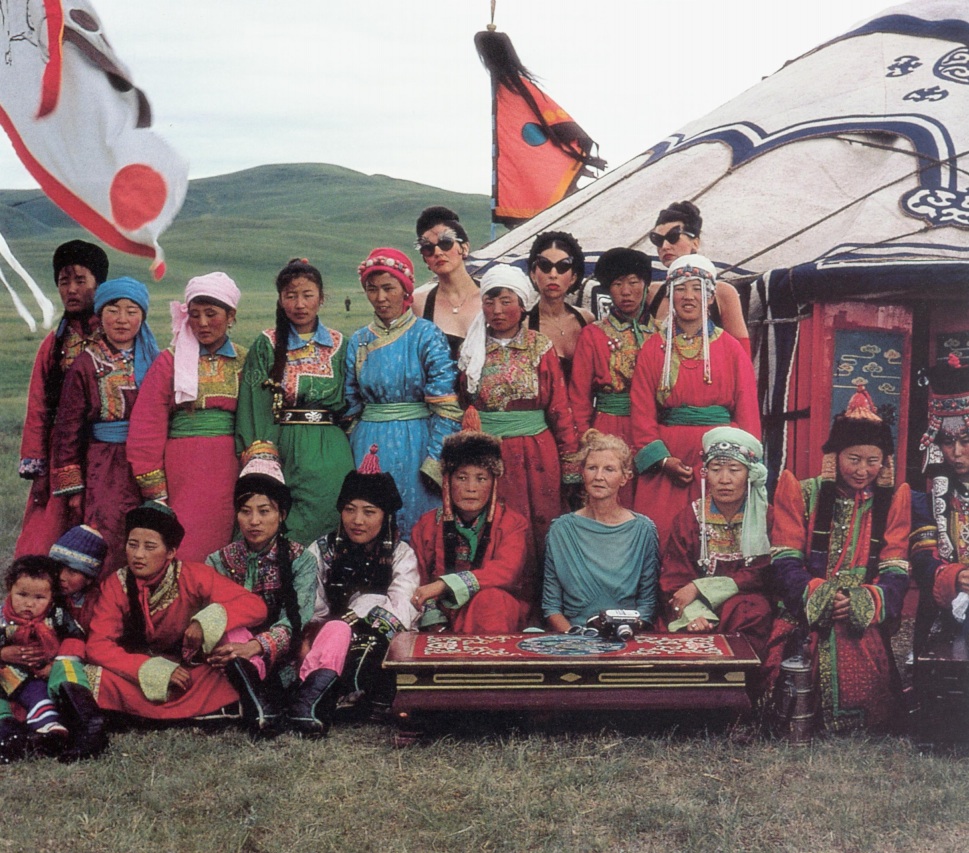
JOHANNA D'ARC OF MONGOLIA (1989)
Join us for our season finale and wrap celebration on March 29!
With our final film we want to thank YOU, our wonderful, loyal, and adventurous audience, with a special wrap celebration at the Globe Cinema. Doors open and food served at 5:00 PM. Make sure to stay afterward for our door prize giveaways and conversation in the upstairs lobby!
JOHANNA D'ARC OF MONGOLIA | Dir. Ulrike Ottinger | 1989 | 165 min
Pre-screening reception at 5:00 PM, film begins at 6:00 PM
Oscillating between modes of lavish theatricality and patient ethnography, Ulrike Ottinger’s kaleidoscopic film Johanna d’Arc of Mongolia renders cultural contact with a dazzling, feminized, and above all singular vision.
Set against the rolling landscapes of the Trans-Siberian railway, Ottinger introduces us to an idiosyncratic band of travelers, including Lady Windermere (Delphine Seyrig, Jeanne Dielman, Last Year at Marienbad), a high-society intellectual and polyglot; several performers, all from wildly different theatre traditions (including Broadway, Russian, and Yiddish); a mousy German schoolteacher (Irm Hermann); and an adventurous backpacker (Inés Sastre). When the train arrives in Inner Mongolia however, they are taken captive by a group of all-female Mongolian warriors, led by Princess Ulan Iga (Xu Re Huar). Captives though they are, the travelers are subject to “sacred laws of hospitality”, finding themselves as guests, and before long, participants in a radically different conception of society.
A lush, poetic, and playful film, Johanna d’Arc of Mongolia marks a turning point in Ulrike Ottinger’s career, between the colourful, carnivalesque films of her early career and the rigorous, observational documentaries of her later career. Calgary Cinematheque is proud to present a film from an underseen, wildly inventive, and vital voice in queer German cinema.
Johanna d’Arc of Mongolia is the fifth and final selection in our FOCUS: LANDSCAPES series, and the final film of the 2017/18 season.
After our screening, stick around for our door prize giveaways. You could win one of the following:
A pair of tickets to Alberta Theatre Projects' hockey and dance extravaganza Glory,
A $50 gift certificate to the Criterion Collection,
A five-film punch pass to Calgary Cinematheque, valid for our future programming
We'll also be serving some sugary treats in the lobby afterward, so stay and chat films with us! We'd love to hear what you thought about the film, the series, or the season.




